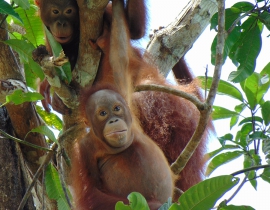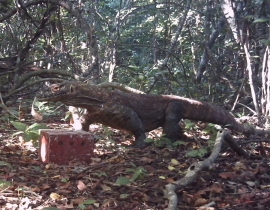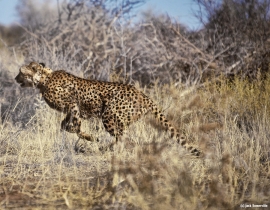Posted October 22, 2018 in All
Action for the Wild has supported The Orangutan Foundation for a number of years, having donated over £40,000 to date.
The Orangutan Foundation’s aim is to conserve the critically endangered Bornean orangutan and its globally important forest habitat. The Lamandau Wildlife Reserve is a 158,000-acre protected area where the Orangutan Foundation work. A recent survey estimated there is a population of more than 500 orangutans, more than half of these were rehabilitated, reintroduced or translocated from the wild. The Foundation is safeguarding the orangutan population in the reserve, through habitat protection, the provision of veterinary care, and ongoing monitoring.
Action for the Wild’s funds have supported the Indonesian vet’s salary, funded rescue and translocation activities and provided funds for the care of a blind orangutan, called Aan.
There are five orangutan release camps in the reserve. Each camp is used as a base from which Orangutan Foundation staff monitor the orangutans and provide supplementary feeding when necessary. At three of the release camps, they have facilities for young orangutans in a soft-release programme. Currently 10 orangutans, aged between two and six-years-old, are based at the facilities and the vet and camp staff monitor their health and progress. The orangutans are taken out into the forest, twice a day, for a few hours to learn the skills they need such as climbing, finding food and nest-building.
At Camp Gemini, they have a large enclosure for the blind orangutan, Aan. She can never be released back into the wild after being shot in an oil-palm plantation. The focus is on Aan’s long-term care and welfare, including enrichment, with new strong ropes sourced and shipped from Java.
The Foundation has feeding platforms, approximately 1 km from each camp, for orangutans who have been released back into wild but may require extra provisioning. This provides an opportunity to check on the orangutans, especially those that have given birth. Each orangutan has its own record, and these are updated at each feeding as to whether they are present or absent and significant behaviours such as matings, pregnancies and the condition of the orangutans are noted down. In August 2018, staff observed 19 orangutans, including their offspring, at the Camp Gemini feeding site. This year they have observed two births to reintroduced orangutans, a positive sign that the population is healthy and growing.
Positively, the number of orangutan rescues has dropped significantly this year compared to 2016 and 2017. The Orangutan Foundation and the wildlife department have been running a socialisation campaign to raise awareness about human-orangutan conflicts and what to do if people encounter an ape in order to reduce the number of orangutans being injured or killed. The Orangutan Foundation are cautiously optimistic that the fall in the numbers needing rescue maybe due to this campaign. They believe there was a peak in 2016, due to the previous year’s forest fires which devastated vast areas of orangutan habitat. In Central Kalimantan, there has also been a reduction in the rate of forest clearance for oil-palm plantations.



